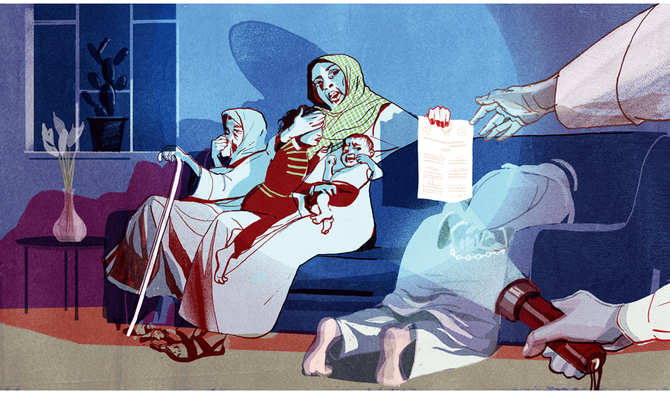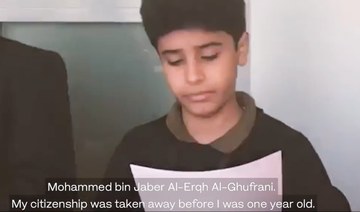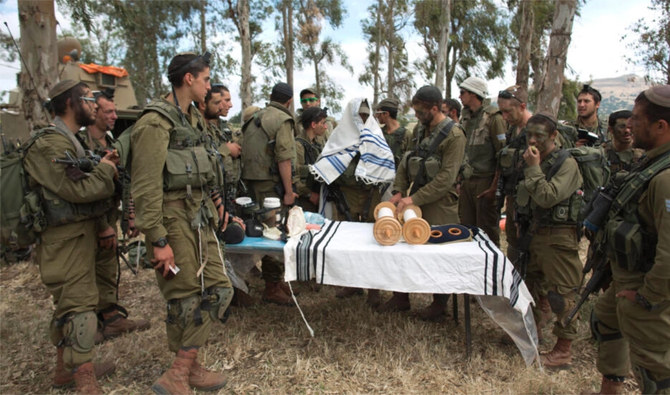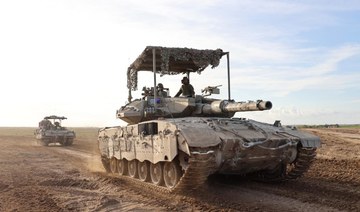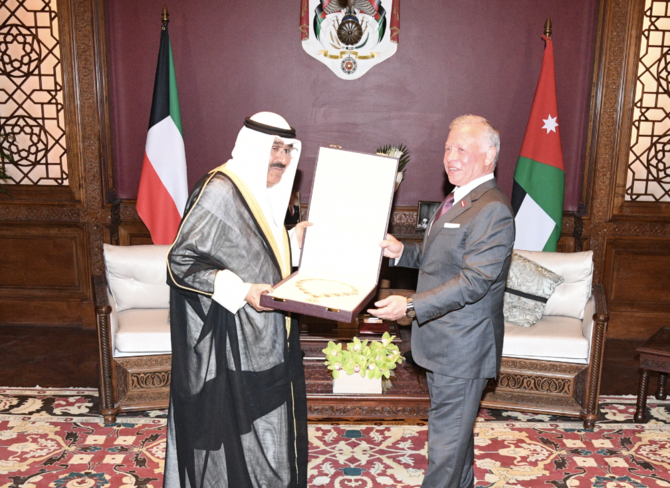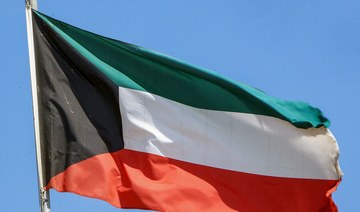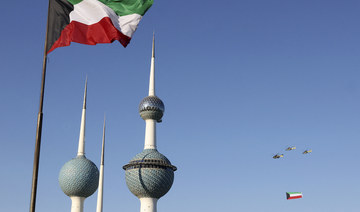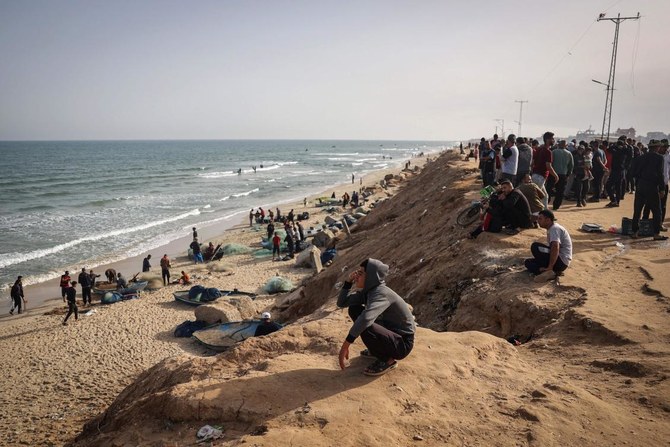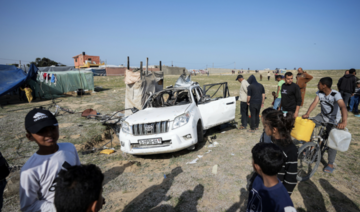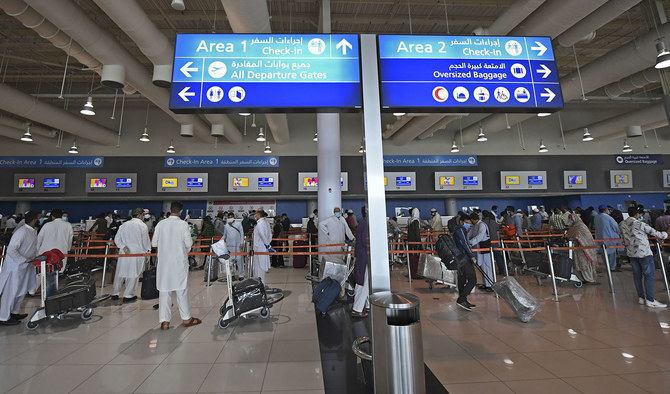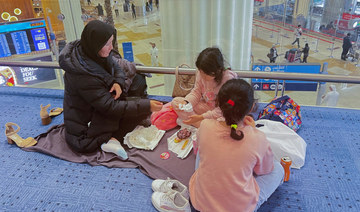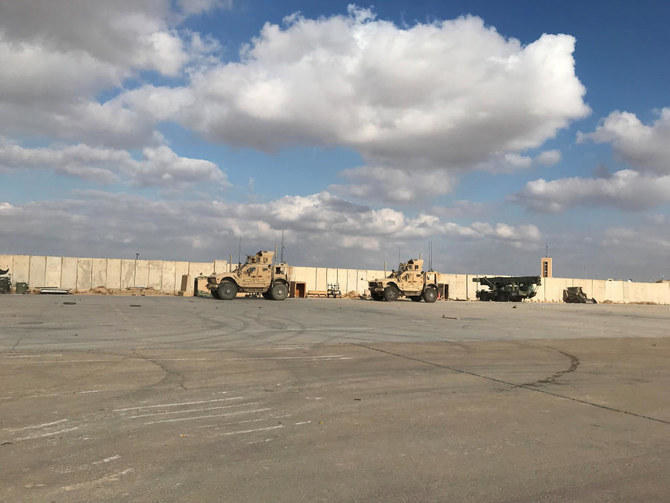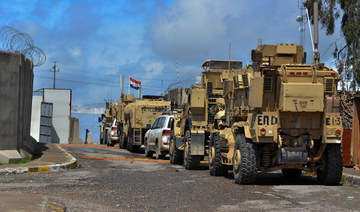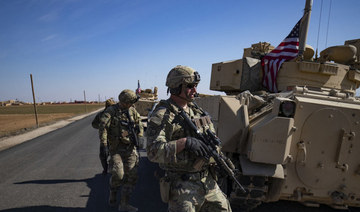JEDDAH: How painful it must be for someone to find themselves barred overnight from entering their homeland, to find themselves stateless and homeless in a foreign country, or to be thrown into jail simply because they belong to a certain tribe. And how painful it must be to find out that their citizenship has been revoked because of political events they had nothing to do with.
Yet this is exactly what happened to 6,000 members of the Al-Ghufran tribe during more than two decades of persecution by the Qatari regime.
Jaber Al-Kahla, an Al-Ghufran tribe member who served in the Emiri Guard on the night of the failed 1996 counter-coup, saw his career derailed by the attempted uprising.
“I was suspended from work for eight or nine months and received my salary at home,” he told Arab News. “Afterwards, they investigated me, asking me about my whereabouts.
“I told them that I was in the headquarters of my units, and my colleagues can corroborate this. They kept me in detention for several days before releasing me. I stayed home for about eight months receiving my monthly salary.
“After my suspension, I applied for a formal leave for six days because I wanted to attend the marriage of one of my relatives in Saudi Arabia. I traveled to the Kingdom with my wife and two children.
“When I wanted to return to Qatar at the end of my leave, I was told that my citizenship was withdrawn and that I was not allowed to return. My vacation extended to 23 years. Now I am 46 and I have 12 children, all of whom are deprived of their country.”
Al-Kahla said: “I was just a military man doing his job, defending my ruler. If I went back in time, I would do the same thing. I have nothing to do with the ruling family differences. You cannot blame all Al-Thani family members for a mistake that (Sheikh) Hamad bin Khalifa Al-Thani committed. They always treated their people in the best of ways.
“Our conflict is with an unjust ruler who violated the rights of Al-Ghufran tribe, which then had 6,000 members. Now this number is much bigger. By revoking their citizenship, they were deprived of their most basic right. If you are a member of Al-Ghufran tribe, you cannot get a mobile chip card because you do not have citizenship; you cannot even object to this. You do not have recourse to law to protect your rights.”
Rashed Al-Amrah, another Al-Ghufran tribe member and former Qatari police officer (pictured with his sister when he was younger, right), said that 6,000 people were stripped of their citizenship before 2003.
WHAT THE AL-GHUFRAN TRIBE WANTS
-
Formal apology for 23 years of oppression, persecution, displacement and confiscation of property and money.
-
Return of all property and funds confiscated by Qatar, including real estate and bank accounts.
-
Compensation for mental, physical and material damages inflicted on tribe members.
-
Restoration of citizenship rights to those born in Qatar to Qatari parents.
“Many Al-Ghufran tribe members returned to Qatar, and some have been granted Qatari citizenship only after changing their place of birth. If you were born in Qatar, your birthplace was changed to Saudi Arabia and you were granted citizenship by naturalization in order to prove to the world that these are naturalized and not true Qataris,” Al-Amrah said.
“Some have returned to Qatar after obtaining Saudi nationality. The Qatari authorities allowed them to return with Saudi nationality to prove the claim that their nationality was withdrawn because they have Saudi nationality and not because of accusations that the tribe is responsible for the so-called coup against Sheikh Hamad.”
Al-Amrah said others from the Al-Ghufran tribe who did not take part in the coup had been stripped of citizenship. They included children, women and the elderly who were innocent, while those who took part in the coup are now living in Qatar and have Qatari citizenship.
“The authorities’ excuse is that these Al-Ghufran tribe members have Qatari citizenship, which is not true,” he said. “If this was the reason, how come the authorities naturalized some foreigners?”
Saleh Jaber Al-Humran is another Al-Ghufran tribe member and guardsman who was deported from Qatar in the wake of the failed 1996 counter-coup.
“I was detained at the headquarters of the Emiri Guard headquarters because of my absence from work for a whole month,” he told Arab News.
“One day before the coup, I left work to visit my mother. A friend told me after the coup that an arrest warrant has been issued against me. I called a friend at the airport and who confirmed that my name was, indeed, listed, so I decided to travel to Kuwait until things calmed down. Since then I have been banned from returning to my country.
“My mother got sick in Qatar and I came to visit her along with my children through Hamad International Airport. When we got to the airport, I was detained and barred from entering. I told them that I had a heart condition and wanted to enter to visit my mother. They allowed my children to enter Qatar, but I was banned and deported to Kuwait.
“The airport authorities interrogated me for seven hours. When I got out, my health had deteriorated, and I asked to travel to Saudi Arabia, where I was transferred immediately to the Prince Sultan bin Abdul Aziz hospital in Al-Ahsa for open-heart surgery.
“It saddens me that my homeland denied my right and refused to carry out my operation close to my mother and my brothers, especially since my mother is old and cannot travel. I was not able to see her for four years except through visual communication.
“When one of my brothers died, the others were prevented from burying his body because there was no citizenship or any document proving his identity. His body stayed in the hospital for a day and after that a Qatari intervened to obtain a burial permit. I cannot mention his name or he will be sanctioned by the Qatari authorities.”
Al-Amrah recounts a similar story: “The Qatari Emiri Diwan issued a letter to all government departments in Qatar preventing them from dealing with Al-Ghufran tribe members. They were prevented from obtaining water and electricity subscription. They also banned charities from giving them aid, and the Ministry of Health was prevented from receiving any patient from the Al-Ghufran tribe.
“The brother of one of the suspects in the so-called coup fell sick and had a seizure. When he went to the hospital, they refused to receive him because he had no identity card or nationality. He stayed the whole day in the back of a pick-up truck until he died. After spending days outside the morgue, his family was able to bury him only when someone from Al-Thani intervened to release the body,” he said.
Al-Humran said: “Six thousand innocent people from the Al-Ghufran clan are being held responsible for a fault committed by a small group of no more than 21 people. Some of those blamed were studying in the US and others were receiving treatment in Germany. They are also holding a widow whose oldest child is six culpable for the coup.
“The Al-Ghufran tribe was blamed for an act committed by 121 people from 17 tribes. The Qatari government says that it withdrew our citizenship because of dual nationality, which is not true. You can find people with dual nationality in all tribes, so it is not a question of dual nationality. But to take such decision without corroboration and revoke the citizenship of a whole tribe, this is a violation of their rights.
“We know this is a malicious and vengeful act of Sheikh Hamad bin Khalifa against the Al-Ghufran tribe because 21 of its members took part in the attempted coup,” Al-Humran said.
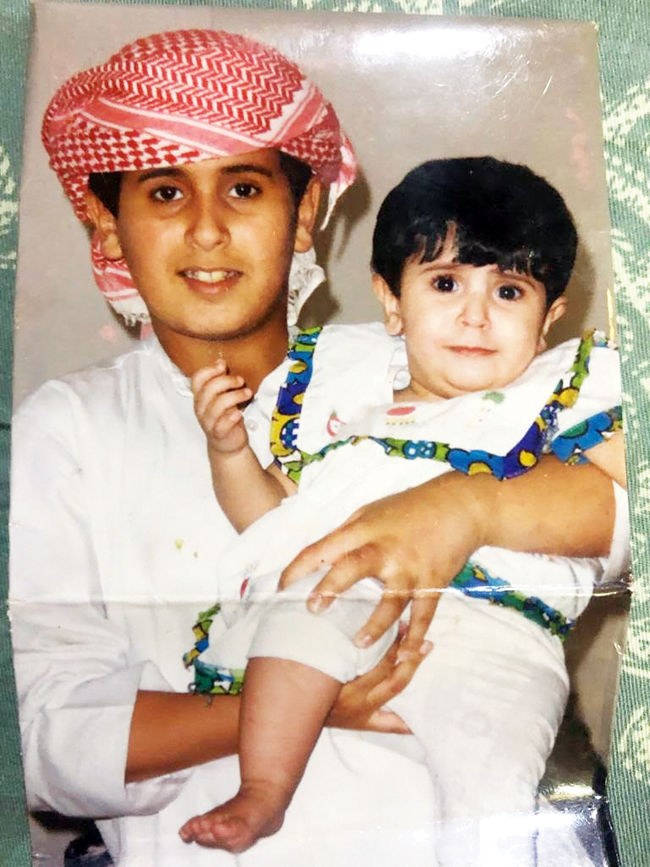
Jaber bin Rashed Al-Amrah, then a Qatari citizen, carries his younger sister in their home in Qatar.
In August this year, Jaber bin Rashed Al-Amrah, son of Rashed Al-Amrah, turned 33, with 24 years of his life spent in the shadow of Qatar’s persecution. “I was born in Qatar and when the coup happened I was 11 years old and didn’t know what was happening,” he told Arab News.
“I traveled with my family to Saudi Arabia during the Eid holidays to visit relatives. Then I went with my father to the UAE and I could not go back to my home, my school and my friends in Qatar. I moved to a second country where I lived for four years and then left the UAE and headed to Saudi Arabia.
“I have a birth certificate proving that I was born in the maternity hospital in Doha, and my name was added to my mother’s Qatari passport as a Qatari citizen. After my father left Qatar, the citizenship of my mother, father, and all my brothers and sisters was withdrawn.
“I am not responsible for what happened then, and I did not even know who is the emir or the crown prince, or the meaning of a coup.
“I was a child when my citizenship was revoked, my rights violated and I was stopped from continuing my studies and normal life.
“The then ruler of Qatar, Sheikh Hamad bin Khalifa, decided that I should live homeless, stateless and without rights,” he said.
“When I moved to Abu Dhabi, my father decided that I needed to continue my education in the UAE. I presented an application to the Emirati Ministry of Education and Youth. My brothers and I continued our studies in Abu Dhabi, but after four years we returned to our relatives in Saudi Arabia, where we settled down until the present day.
“I am (now) married with children and holding the Saudi nationality (that I got) after King Salman bin Abdul Aziz intervened when he was governor of Riyadh to get my father and many of our relatives Saudi nationality. I now work in a government job,” he said.



